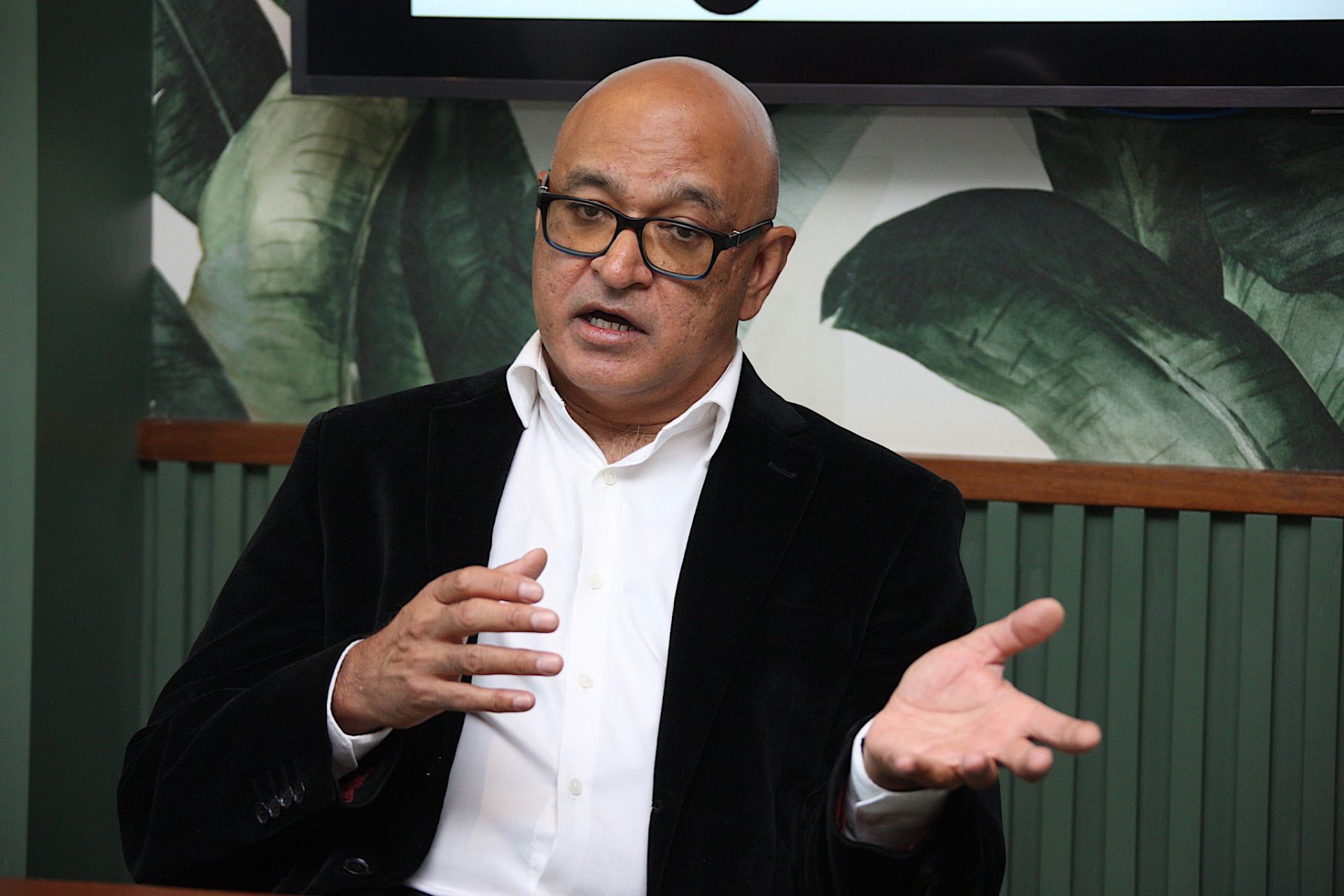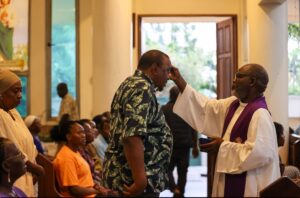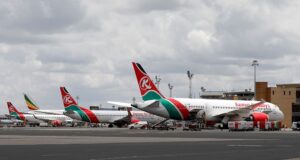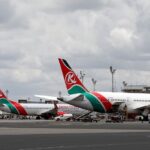By Cynthia Kenyani
Executive Chairman of Ancestral Africa, Mr. Ose Imoukhuede and Shreyas Patel, Managing Partner,Ancestral Africa
Over
25,000 Small and Medium Enterprises in Africa are set to benefit from a newly
launched online trading platform aimed at promoting
intra-Africa trade.
Initially, Ancestral House Eastern Africa
online trading platform, which was launched today, will connect East and West
Africa traders at a go.
According
to the Chairman of Ancestral Africa, Mr. Ose Imoukhuede, Ancestral Africa has
been enabled to strengthen stronger integration and greater intra-Africa trade.
“Over time, multidimensional dislocations have
stymied the emergence of an integral and prosperous African collective.
Experiences from the pandemic have shown the emergence of the new world;
limited restrictions in movement of persons and goods modelled by the changes
in consumer,” said Imoukhuede.
“The
biggest challenge most SMEs in the continent face, is that they cannot easily
export goods within the continent, but they can easily export and import goods
from other continents despite the intra Africa trade potential being over US$ 1
billion annually,” he added.
This new
platform will offer services such as business matchmaking, market research,
logistics, consumer trends and behaviors.
“We are
connecting producers and consumers of goods and services across Africa through
technology-driven go-to-market information and expertise. The promise of Africa
has throughout our history hovered above us almost like an ideal, something
wished for but unattainable, whereas the African land space is variously
blessed in resources and abundant talent to fulfill this promise,” said Imoukhede.
 Mr Shreyas Patel, Managing Partner,Ancestral Africa
Mr Shreyas Patel, Managing Partner,Ancestral Africa
Patel, the partner, on his part, noted that the idea of establishing a trade house structure recognizes the
dislocations in Africa which are mainly caused by lack of market information,
cultural indifferences, and other trade barriers.
According to Ancestral House Eastern Africa,
Some of the challenges facing the SME sector in Africa include lack of capital,
market access, skills training, as well as administrative barriers.
“There are a number of challenges facing the
SMEs sector in the continent ranging from lack of market information,
inexperienced exporters/importers, poor logistics infrastructure, inefficient
cross-border payment systems/infrastructure, cultural differences, gaps, trust
deficit and varied Competitive landscape. We want to be the one-stop solution
for all these problems and enable them scale up their businesses.”
The launch
comes at the wake of a vibrant African Continental Free Trade Area (AFCFTA)
that cover a market of 1.2 billion people and a gross domestic product (GDP) of
$2.5 trillion, across all 55 member States of the African Union.
SMEs
account for around 80 per cent of the region’s businesses and mostly usually
struggle to penetrate more advanced overseas markets. However, with AFCFTA, the
SMEs are well positioned to tap into regional export destinations and can use
regional markets as stepping stones for expanding into overseas markets at a
later point.
The
African Continental Free Trade Area offers employment and entrepreneurship
opportunities for youth, but policymakers and development organizations must
take steps to ensure the agreement reaches its full potential.
Africa’s
large and fast-growing youth population is considered one of its greatest
assets, with a central role to play in shaping the development of the
continent. Yet, young Africans face numerous challenges that affect their
livelihoods and make it difficult for them to thrive.
The
African Continental Free Trade Area (AFCFTA) has what it takes to tackle these
challenges by creating more jobs and entrepreneurship opportunities for young
men and women.
A new International Trade Centre (ITC) report,
Opportunities for Youth Employment and Entrepreneurship: Understanding the
African Continental Free Trade Area, explores how youth stand to benefit from
the creation of a single market and promotion of key sectors, including
manufacturing, agriculture and services.
Africa’s large and fast-growing youth
population is considered one of its greatest assets, with a central role to
play in shaping the development of the continent.
About the Author
Rading Biko
Contributor
A highly experienced multi-platform Editor, digitally aware, skilled with words, and endowed with the ability to work effective under deadline pressure. Coming with a record of accomplishment of delivery high level of clarity, accuracy, and balance in copy editing functions. Since 2010 I have been working across the full spectrum of Kenyan Media as a Multimedia Journalist on both Electronic(Radio and Television),Print and online media.
















